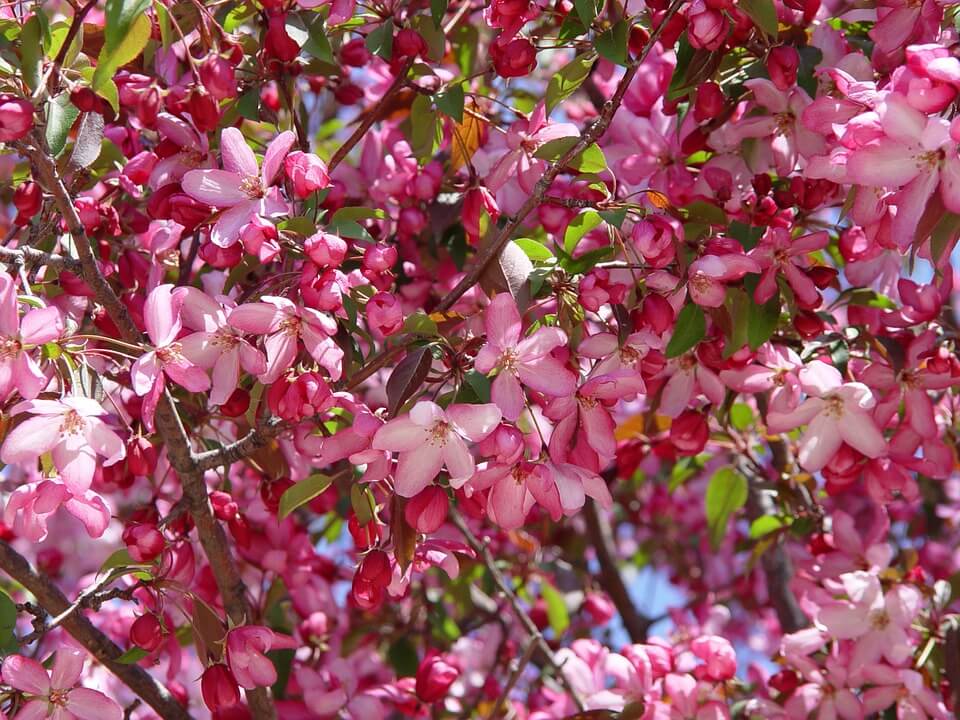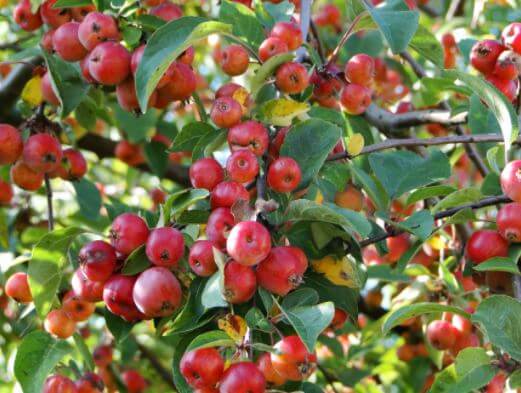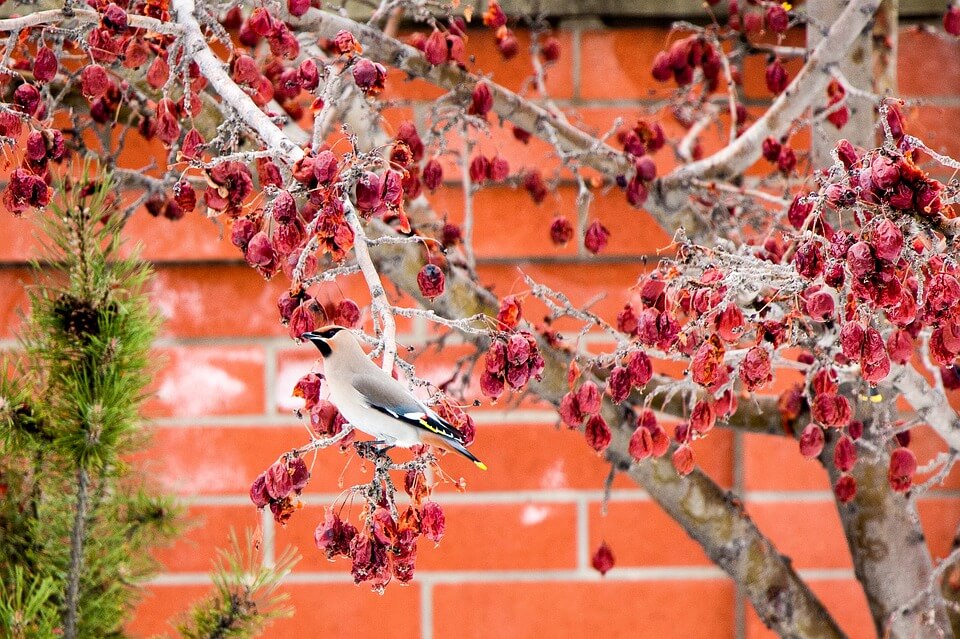Cherry trees are one of the nation’s, if not the world’s, favourite species of ornamental tree. However, there is another tree which flowers heavy, remains small but also gives the added appeal of bright and colourful fruit; the humble crabapple. Often overlooked by gardeners a crabapple tree is fully hardy and well suited to the UK climate with a fantastic spring bloom. With smaller growth than most cherry trees they are perfect for a more modern, compact garden. The benefits and aesthetic achieved with a crabapple tree can be a refreshing surprise.
In many ways the crabapple serves a national duty. Native to these shores they tolerate the worst of the British weather and can be grown in almost any soil type as long as it is well-drained. Nearly all are recognised wildlife benefactors and so are fantastic for up-keeping our national biodiversity. There really should be a crab-apple for every home!

Most crabapple varieties produce a bloom heavy enough to rival that of any cherry tree and can come in a variety of different tones. You may get light white or deep pink, sweetly scented flowers. Flowering in Spring they are one of the first to add colour to the garden. This is an essential helping hand to pollinating insects coming out of winter. All of this keeps the rest of your garden healthy and looking great!
What a crabapple gives you over an ornamental cherry tree however is the colourful, jewel-like fruit which can hang on well into winter and even through to the new year depending on variety. The tree therefore gives you a rich and varying pallet of tones potentially for over half a year! The deeper roots of a Crabapple also make them a safer bet to maintaining a healthy lawn than a cherry blossom.

But that’s not all, the fruit serves more functions than those purely aesthetic. Despite the fact that nearly all varieties are far too sour to eat in their natural state crabapples serve a host of culinary functions. Rich in pectin crab apples are used for making fantastic jams and jellies which can be served on bread, scones or used to compliment various meats. And if you won’t eat the fruit, birds and small mammals certainly will in those tough winter months.
If you already own apple trees then you’ve just been given another huge reason to love the crabapple. Crabapples can cross pollinate nearly all other varieties of apple as long as they both have a similar flowering period. It is for this reason that crabapples are often dotted around apple orchards to offer variety and pollinate the edible cultivars enriching their flavour.

So there you have it; if you have an ornamental cherry (or two) in the garden, or if you are just looking for something a bit different then look no further than the crabapple. Hardy, beautiful and versatile they continue to serve us well and are becoming increasingly important as our gardens become smaller and our native species come under increasing attack.
Liam works in the buying team at Primrose. He is passionate about studying other cultures, especially their history. A lover of sports his favourite pass-time is football, either playing or watching it! In the garden Liam is particularly interested in growing your own food.